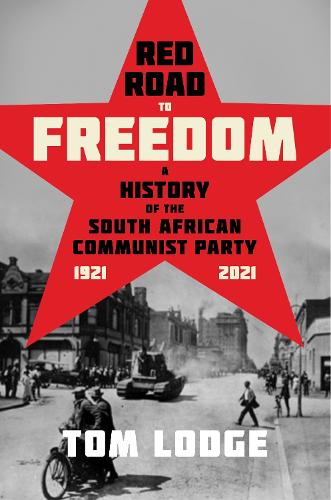
・ISBN 978-1-84701-360-6 paper GB£ 49.99
¥15,451.- (税込) *
| 著者・編者 | Looge, Tom, |
|---|---|
| 出版社 | (J. Currey, UK) |
| 出版年 | 2021 |
| ページ数 | 626 pp. |
| ニュース番号 | <001-23813> |
Longlisted for South Africa's 2022 Sunday Times Non-fiction Award Definitive and gripping narrative history of the Communist Party of South Africa. Renowned historian Tom Lodge has written an immensely readable and compelling sweep of history, spanning continents and the last hundred years, producing the first comprehensive account of the South African Communist Party in all its intricacies. Taking the story back to the party's pre-history in the early 20th century reveals that it was shaped by a range of socialist traditions and that their influence persisted and were decisive. The party's engagement in popular front politics after 1935 has been largely uncharted: this book supplies fresh detail. In the 1940s the author shows how the party became a key actor in the formation of black working-class politics, and hitherto unused archival materials as well as the insights from an increasingly candid genre of autobiographies make possible a much fuller picture of the secret party of 1952 to 1965. Despite its concealment and tiny numbers, its intellectual impact on black South African mainstream politics was considerable. On the exile period, the author examines the activities of the party's recruits and more informal following inside South Africa, as well as the scope and nature of its broader influence. In 1990, a year in which global politics would change fundamentally, South African communists would return to South Africa to begin the work of reconstructing their party as a legal organisation. Throughout its history, the party had been inspired and supported by the reality of existing socialism, state systems embracing half of Europe and Asia, in which the ruling group was at least notionally committed to the building of communist societies. With the fall of Eastern European regimes and the fragmentation of the Soviet Union, one key set of material foundations for the party's programmatic beliefs crumbled and its most important international alliances in the global socialist community in Eastern Europe and Russia would end. Finally, Lodge brings the story up to date, assessing the degree to which communists both inside and outside government have shaped and influenced policy in successive ANC-led administrations, particularly during the popular resistance to apartheid during the 1950s, which was underpinned by the party's systematic organisation in the localities that supplied the ANC with its strongest bases. Jacana: Africa, India